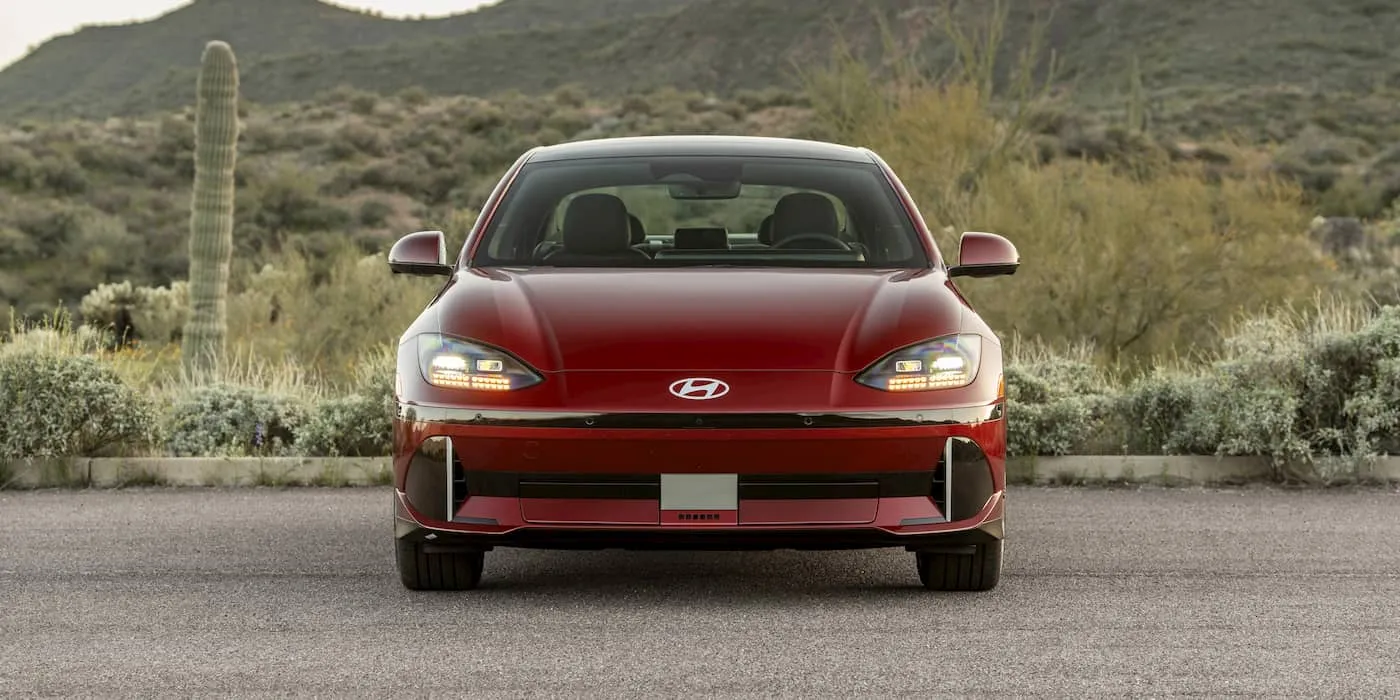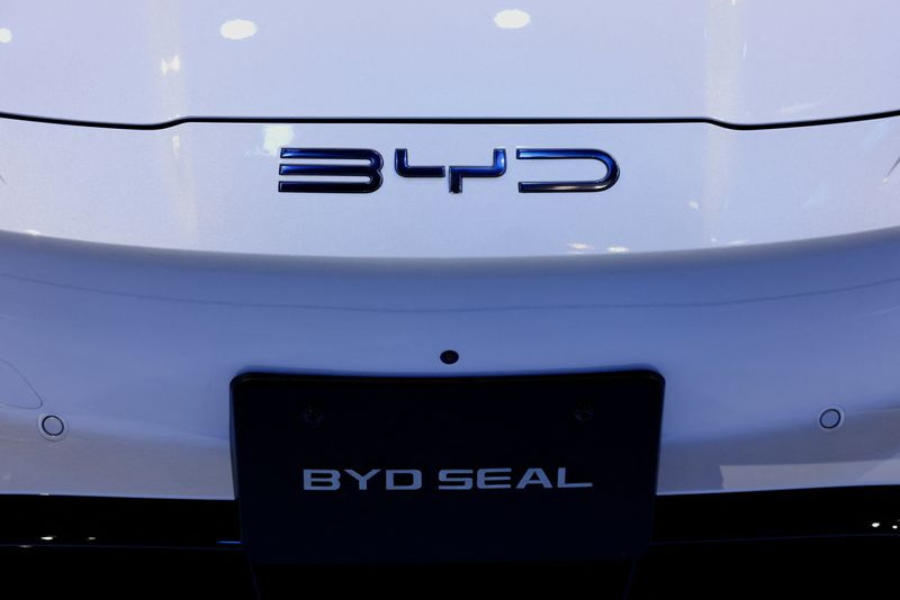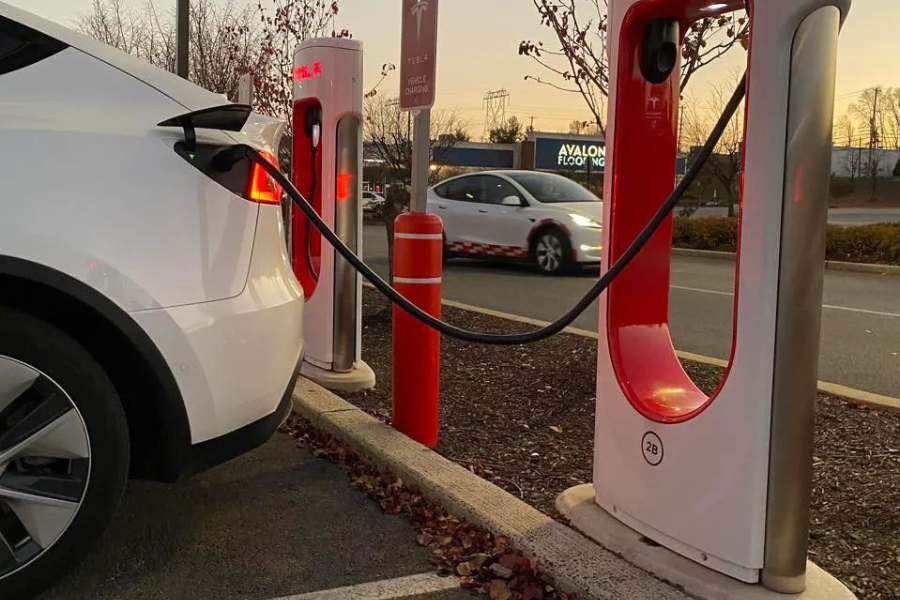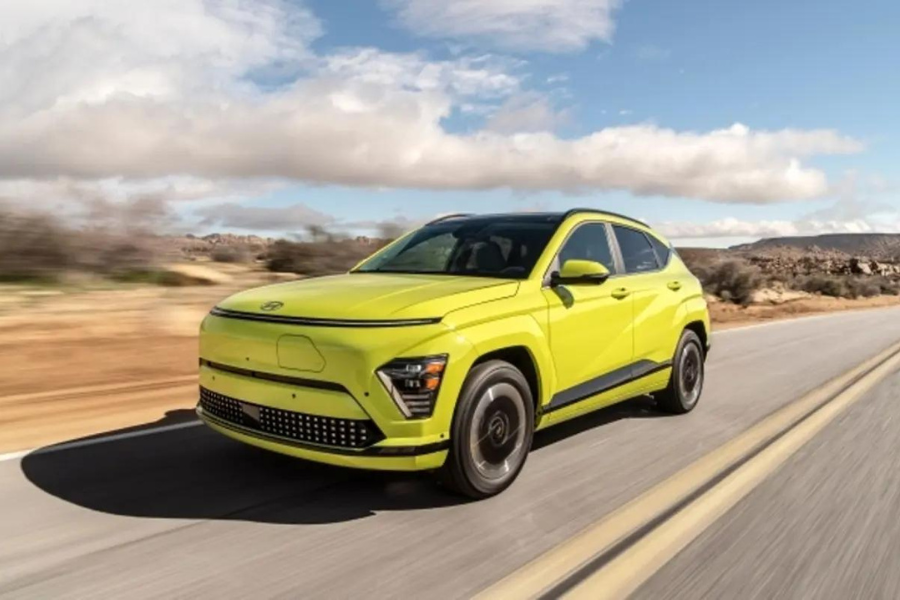Are you tired of using non-renewable energy sources to power your electric car? Solar power might be the solution you’re looking for. You may charge your electric vehicle using solar energy without adding harmful pollutants. Let’s explore how much solar power needed for electric cars.
This detailed article walks you through comprehending solar energy for electric vehicles. Additionally, it determines the number of solar panels necessary and predicts the amount of solar electricity needed to charge your automobile. Continuing the reading will give you the perfect time to charge your electric vehicles with solar panels and more.
Solar Power for Electric Cars
The solar panel charging solution can lower your carbon footprint and use less non-renewable energy. Photovoltaic panels generate solar power, transforming it into usable form via the photovoltaic effect.
These panels produce direct current, which must be converted or transformed into AC using an inverter to charge your electric cars and other electric vehicles. After the conversation, your battery can be charged using this AC electricity.
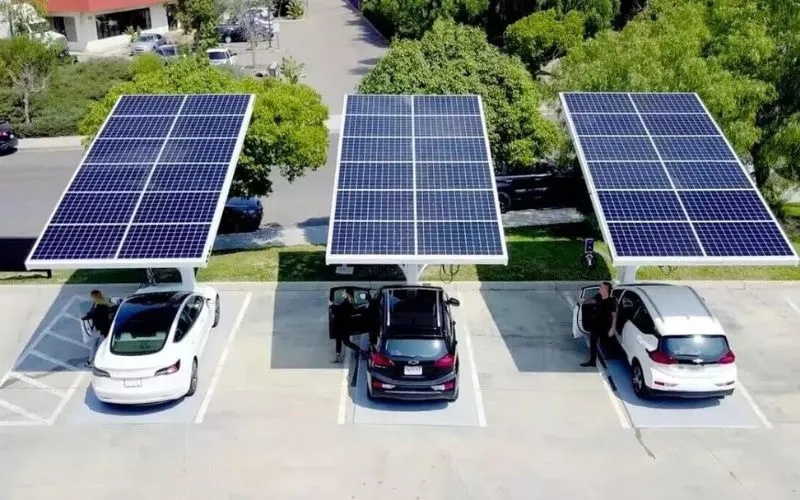
Furthermore, the typical solar panels for EV charging depend on your consumption habits in terms of kilometers or miles driven as well as the capacity of the battery in your car.
Finally, many potential budget-conscious people ask, how much electricity does an electric car use in a year? The answer to this issue is complex, given that several factors determine how much electricity an electric car needs. However, based on the usual home EV charger’s energy use of 11.81 kWh daily, an electric car requires around 4,310.65 kWh of power annually.
How Long Does It Take a Solar Panel to Charge an Electric Car?
There are a few things to keep in mind if you want to know how long would it take to charge an electric car with a solar panel.
Firstly, your electric car’s battery size and capacity significantly impact the charging time. Larger batteries require more power and more time to charge fully. But exactly how much energy does your EV need to fully charge?
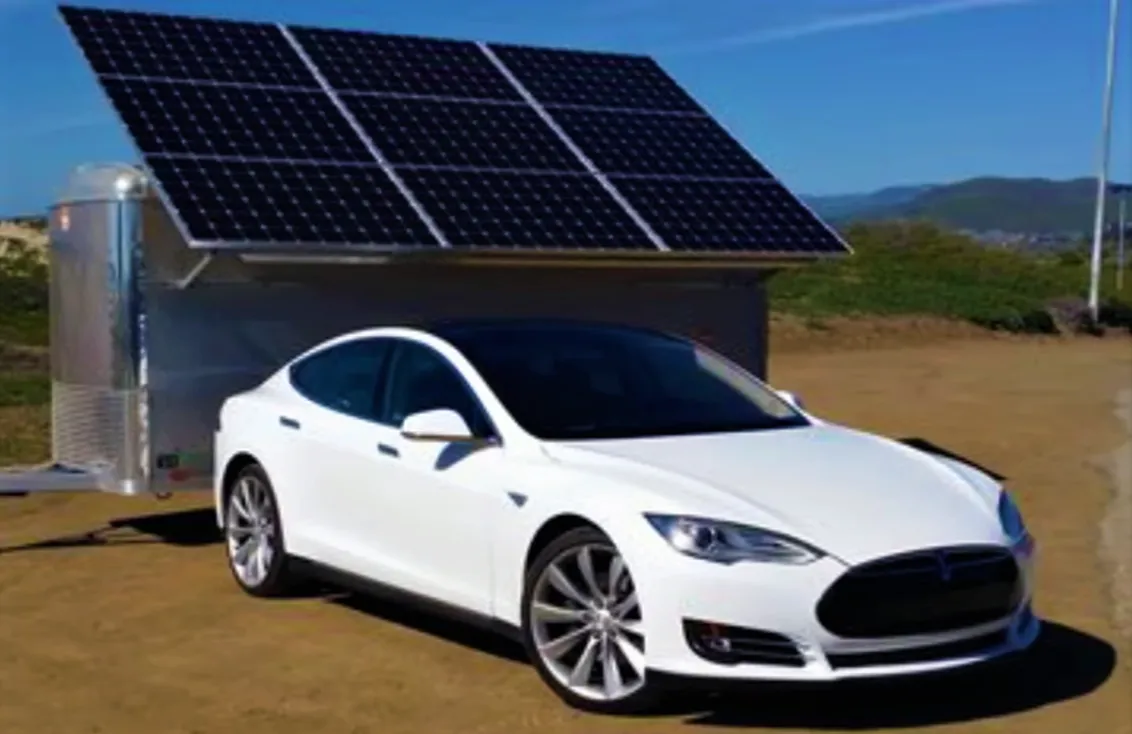
Additionally, the charging speed can vary based on the specific charging capabilities of your vehicle. Next, consider the capacity and efficiency of your solar panels. Higher-capacity panels generate more electricity, allowing for faster charging. Sunlight availability and intensity are crucial variables.
Charging times will be shorter on sunny days with direct sunlight than on cloudy or shaded conditions. You can estimate the approximate charging duration by assessing your electric vehicle’s battery size, solar panel capacity, and local sunlight conditions.
Determining the Number of Solar Panels Needed
Determining how many solar panels would it take to charge an electric car is crucial in your sustainable journey. For your information, the output is the maximum amount of power a solar panel can produce under the best possible condition.
Since the solar panel’s output directly and significantly influences how fast your electric car is charged, you should consider it before purchasing.
However, efficiency is still crucial and measures how successfully a solar panel turns sunlight into energy. Due to improved efficiency, more power is produced, enabling quicker and more effective automobile charging.
Want to know how many solar panels to charge a Tesla? Charging your Tesla with 8 to 10 solar panels would be best. Understanding this will allow you to learn about the required solar panels for charging your car.
The Best Time to Charge Electric Vehicles with Solar Panels
Depending on your location and the season, the best time to charge EV with solar panels is between 10 am and 4 pm during peak sunshine hours. When the solar panels produce the most power, your car’s battery may be swiftly and effectively charged.
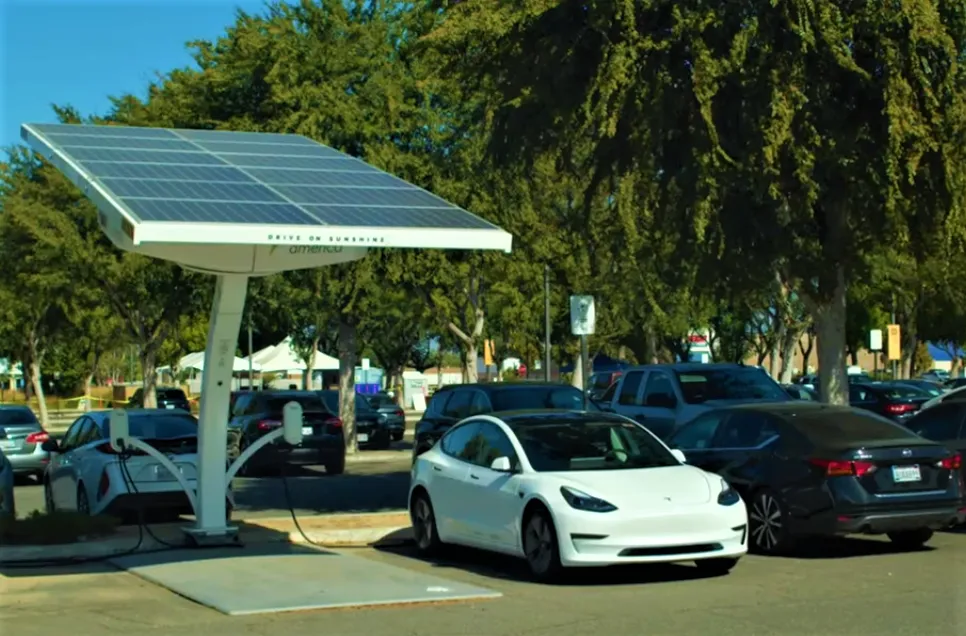
Avoid using grid electricity, which could result in extra expenditures and carbon emissions, by charging your EV when the sun shines the most. Some electric vehicles include a function that lets you select a certain charging period, which can help plan the charging procedure during the height of the day’s sunshine.
Alternatively, you may manually plan to charge periods depending on the output of the solar panels and modify the scheduling in response to the weather. Adding a solar charging station to your home may be a terrific option after considering the solar EV charging station cost.
Charging an electric car off-grid utilizing solar panels, wind turbines, or generators in conjunction with the proper infrastructure for charging and energy storage options is feasible.
You can use a solar generator to recharge an electric car. Solar generators collect the energy and convert it into electricity to replenish an electric car’s battery.
The use of 200-watt solar panel is best to recharge an electric car’s battery because it has the required voltage for charging.
You must determine your electric vehicle’s battery capacity and consumption before deciding how many solar panels you need. Furthermore, you must charge your electric car during peak sunny and the least busy hours to save grid power costs, increase efficiency, and decrease emissions.

